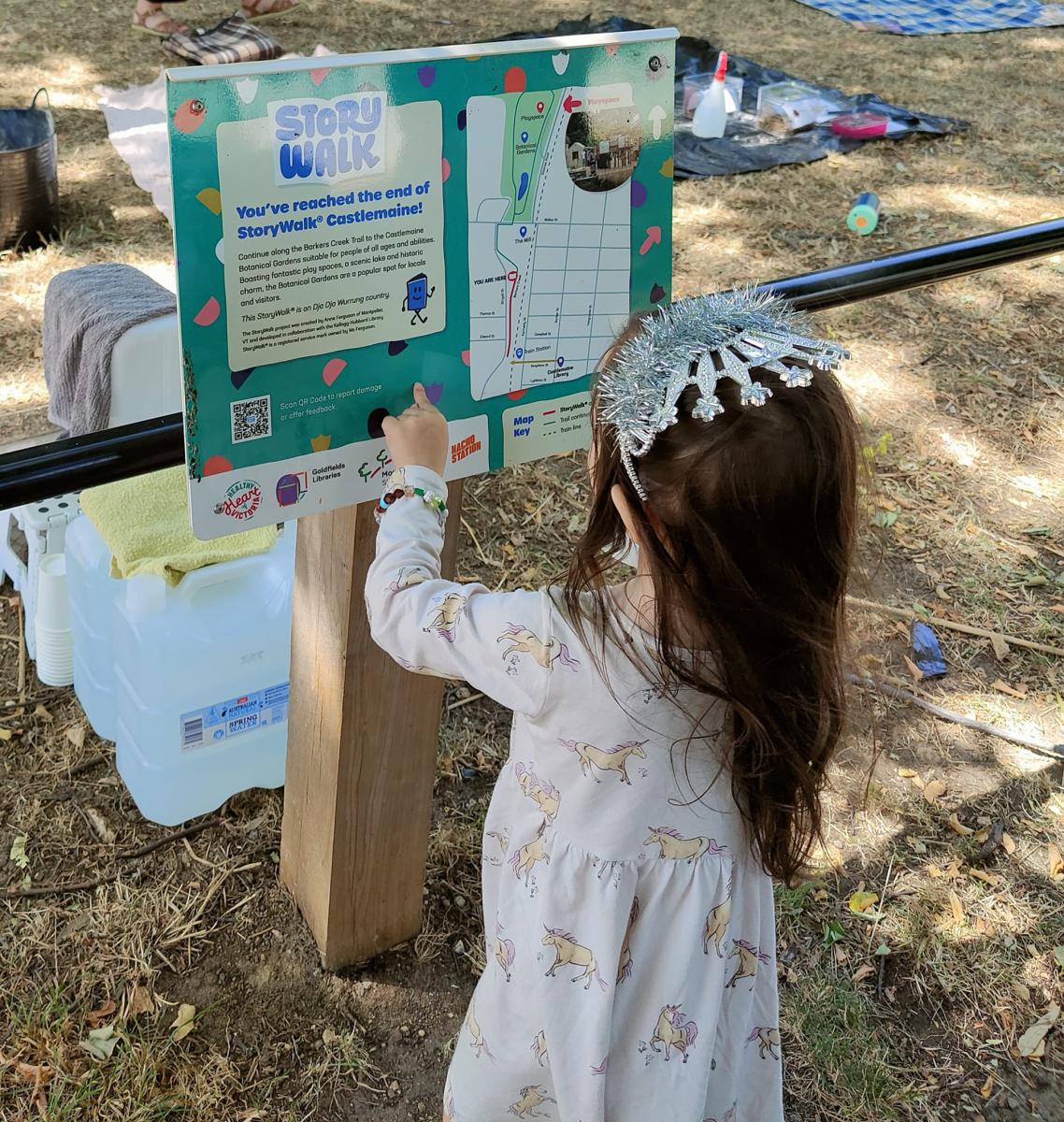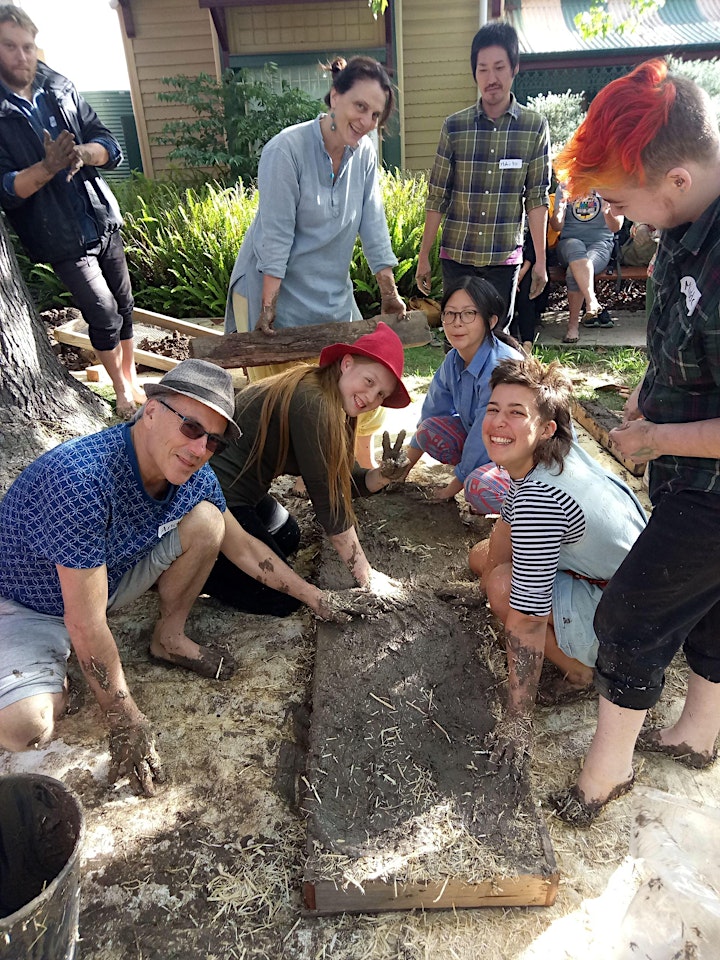Basically a privileged person is somebody who in fact doesn’t have or doesn’t need community because they can meet all of their needs with money. Because if you have enough money in modern society, you don’t need anybody or anyone or anything. You don’t need the people around you because you can pay somebody else to do whatever they’re doing. You don’t need the ecosystem around you, you don’t need the soil around because you can pay to import food from somewhere else. You’re completely independent of your relationships, except for the one one relationship that matters in modern society to sustain life, which is money, or so it seems, but as the study you cite demonstrates, it’s not actually true that we can meet all of our needs with money. But what money does is it replaces human relationships. So in an Amish community, there’s no such thing — as far as I know — as insurance on your home. Because if your home burns down, the community will get together and build you a new home. That’s your insurance. And your insurance payment is all the times that you helped somebody else build their house. So you don’t need insurance in that community. Well, any society that lives in that way is a ripe target for development, as it’s called, for economic growth, because you can replace that community function with a paid service. And so what’s happened in the modern era is that one after another, human relationships have been replaced with paid services. Everything from growing food to taking care of children to making entertainment. It’s not just the survival needs, it’s also: What does it take to live well? To be fully human? And if you don’t make your own music any more but you download it from Spotify, then that’s another service that’s been converted into money. And also ecological services get converted into something that you purchase. And that strips away what actually makes life rich. So you ask what to do about it, and on the broadest level, it’s to reclaim to restore, to recover, to regenerate the lost relationships to come into relationship again … but to turn that idea [of privilege] on its head and embrace the knowledge of what actually makes life rich, what makes life good, and to say, ok, it’s time to enrich ourselves again. It’s time to reclaim the lost relationships.
Charles Eisenstein, from an interview on the Regenerative Agriculture podcast, episode 86
Welcome to the August/September 2023 edition of Localising Leanganook e-news. As the sun starts peeking through the clouds and the dazzling bloom of wattles fills the bush with golden yellow colour, we sense with anticipation the coming of spring and the return of warmer weather. This edition includes another fascinating feature article from one of our editors (Keppel) and a rich, soulful array of events and activities from our amazing community to enlighten, inspire and uplift you. We hope you enjoy it.
Keppel, Laurel and Nikki
Contents
Feature article – The Forgotten Third Way: Social Threefolding and its Role in Supporting Social and Ecological Renewal
What’s happening in Central Victoria
- The arts and culture
- Building community
- Ecology and the environment
- First Nations
- Food growing, farming and food security
- Sustainable economic initiatives
- Sustainable living resources
Letters
Food For Thought
Feature Article
The Forgotten Third Way: Social Threefolding and its Role in Supporting Social and Ecological Renewal
By Keppel Cassidy, Kyneton
What socio-economic framework will give us the best chance of creating a thriving, ecologically sustainable society? Capitalism, socialism/communism or something else? This question, which was the subject of both a major global power struggle and intense academic debate in the 20th Century, is surely just as relevant today as it was then, if not more so. The collapse of the Soviet Union and its allies in the late 20th Century seems to have been largely triggered by the failure of their economic model, and since that time socialism and communism have largely been in retreat, notwithstanding a surge in support in the 2010s in the USA and many countries in Western Europe led by activist politicians such as Bernie Sanders and Jeremy Corbyn. However on current evidence, capitalism is also failing to fulfil its promises. Poverty and inequality are rising across the world, and power is becoming concentrated in fewer and fewer hands through the concentration of ownership in media and business, undermining democratic processes. Meanwhile quality of life continues to decline for many people, forced to work longer and longer hours to make ends meet, with less and less time for all that makes life meaningful. Finally, the Earth’s ecosystems are at crisis point on multiple fronts: biodiversity loss, air and water pollution, soil degradation, resource depletion and climate change are all coming together to generate an existential crisis for the web of life and for humanity.
A Third Way between capitalism and communism
Many attempts have been made to find a ‘Third Way’ that will provide the roadmap to lead us to a healthy, prosperous society that communism and capitalism have failed to achieve. Following the Great Depression of the 1930s, a broad consensus emerged in the non-communist Global North to adopt Keynesian, social democratic economic policies, including protectionist industrial policies, public ownership of key utilities such as transport and infrastructure, publicly funded education and healthcare, and a strong welfare safety net. Following the turn towards neoliberalism in the 1970s and 1980s, left-leaning parties led by politicians such as Tony Blair, Bill Clinton and Gerhard Schroeder sought to combine socially progressive policies with a free market, neoliberal economic platform. This move was politically successful but led to both short- and long-term negative social and economic impacts, some of which are playing out today with the rise of an impoverished, angry class in many countries who are turning towards conservative populism, as demonstrated by the support for politicians such as Marine Le Pen in France, Donald Trump in the USA and Pauline Hanson in Australia.
Social threefolding: the forgotten ‘Third Way’
Yet there are ‘Third Way’ frameworks that are more than just a politically expedient halfway compromise between capitalism and communism. One of the least known, but in my view most profound of these is what has become known as social threefolding, developed in the early 20th Century by the Austrian philosopher, educationalist and visionary Rudolf Steiner. I believe that social threefolding offers a lens through which we could develop both small- and large-scale policy that could overcome many of the problems that have been created through capitalism and socialism, and also to facilitate the urgent transition to an ecologically sustainable society. Steiner argued that the social threefolding approach wasn’t an intellectually constructed conceptual framework, but instead a reflection of the kind of society humanity is already reaching towards, albeit in a fumbling and stumbling way. He emphasised that, to be successful, social and economic structures needed to be suited to the present evolutionary stage of humanity, being neither regressive (belonging to the past) nor too advanced for our current level of moral and spiritual development. In this way, the functioning of communities and societies can support the individual and collective evolution of humanity rather than hindering it.
Steiner described the threefold society as being an ‘organism’, and this picture can help us to grasp it as a living reality rather than an abstract system. The foundation of this society is that it is built on three interconnecting spheres: the cultural sphere, the rights sphere, and the economic sphere. Whilst these three spheres are interdependent and interact with each other, they each have their own distinct identity and needs, and must be allowed to operate autonomously according to these. I will describe each of the spheres in turn below.
Cultural sphere
The cultural sphere governs all of those activities connected with learning and growth for the individual and society. This includes all levels of education, the arts and all forms of spiritual practice. Here, we find and develop new ideas and practices that will benefit society as a whole. It is also where we engage in work to remedy existing problems for the benefit of society – thus it includes all kinds of health care, social work and welfare. The key concept that must guide the cultural sphere is freedom: people must be free to think for themselves, try new approaches and debate the best way forward for us to gain the full benefit of their knowledge. Steiner emphasised the importance of educators having autonomy over what and how they teach for this reason, and likely would have extended the same expectation to health care professionals. A social threefolding approach also requires freedom of speech to be strongly protected, because only when there is the ability to discuss theories and practices freely can the best knowledge emerge.
Rights sphere
The rights sphere governs those institutions that determine the rules by which we live together, so that the dignity and worth of each person are honoured. This includes the political system, the legal system, and institutions that are involved in upholding and enforcing laws, including the police and a variety of government agencies (for example in Australia, the Fair Work Commission, state and local government planning officers and state environmental protection agencies). The key concept that must guide the rights sphere is equality. This reflects a belief in the sacredness of life, and the dignity of all people regardless of characteristics such as race, culture, gender, sexuality, ability or belief. Thus laws should apply equally to all people and not be differentiated based on power, privilege or personal characteristics.
Upholding human dignity also requires that individuals be treated fairly and with respect by others: hence acts that oppress or harm another person are prohibited, such as intimidation, theft, all kinds of abuse and homicide. In the workplace, the rights sphere should ensure that workers are paid fairly for their work: Steiner’s simple yet profound prescription was that each worker, no matter how grand or humble their profession, should receive sufficient payment for the product of their labours such that they and their dependents could meet all of their needs for living well until the next product should be completed. In this statement, he predated concepts such as fair trade and a living wage by several decades.
Economic sphere
The economic sphere governs all activities that are concerned with meeting our material needs for surviving and thriving in the world. At their most basic, these include shelter, food and drink, clothing and all kinds of tools and equipment for facilitating access to these. Thus this sphere governs all of those who are involved in the production, distribution and consumption of goods. The key concept that must guide the economic sphere is brotherhood/sisterhood, meaning that we engage economically with others with the goal of benefiting both ourselves and them, based on a feeling of kinship with them. Another, more contemporary term for this consciousness is solidarity. Put simply, our focus becomes co-operation rather than competition.
You will likely notice that it is in this sphere that we see the greatest departure from orthodox economic approaches. Neoliberal capitalist theory proposes that people’s primary economic motivation is self-interest, and that being free to pursue personal wants, whatever these may be is the ‘engine’ that will drive the economic activity needed to generate prosperity for the good of society. The social threefolding approach recognises that people need to be able to act autonomously to meet their economic needs, but argues that action driven by purely egotistical desires will frequently lead to destructive impacts on others, as both socialist theorists and indigenous societies have long recognised: the oppression of the weak, harm to community cohesion and the destruction of nature to name a few.
On the other hand, the motivation of free co-operation borne out of a sense of solidarity acknowledges and takes advantage of the primacy of the impulse towards survival and material wellbeing in humans, the motivation of Ananke or necessity. Yet it encourages us to bring the light of awareness to this impulse, so that we perceive that we will survive and be happiest when all of those with whom we interact economically also survive and thrive. And it recognises that, freely chosen, co-operative action is actually the most efficient and powerful way of meeting needs: indeed Steiner often pointed out that the material comforts we enjoy today are entirely dependent on our co-operation with others through the economic sphere: the farmers who grow the food that we eat, the manufacturers who produce the clothes we wear, the builders who built the house in which we live, and many others. All the social threefolding approach does is make these relationships conscious, and call on us to infuse them with a sense of solidarity, which can also be understood from the perspective of the rights sphere as respecting the rights and dignity of others.
How can social threefolding help to create a healthier, more just and sustainable society?
I have been contemplating this question over the last week, and have a few initial thoughts came to mind, though these are likely not exhaustive. Firstly, I think one of the most important things social threefolding does is to separate out the three spheres and their three different human impulses, while emphasising that each is equally important: the impulse to learn and grow, the impulse to live harmoniously and respectfully together, and the impulse to meet our needs for physical survival and health. These can be roughly mapped onto Maslow’s Hierarchy of Needs, and like Maslow’s work provides an antidote against the human tendency to obsessively focus on one thing at the expense of others. For economists often concentrate their attention solely on material prosperity, which meets the needs of the economic sphere, but ignores our need for a supportive community and opportunities to grow and express our unique potential. On the other hand, those who concentrate exclusively on freedom of self-expression or creating a just society without considering how we are going to sustain ourselves are also not going to meet the community’s needs.
Secondly, a unique insight of social threefolding is that the work of each sphere is right for that sphere only, and they should not be muddled up. To give an example of this, we can consider those who subscribe to a libertarian philosophy, which demands freedom in all areas of life. In relation to the speech, thinking, creativity and indeed the need to ‘follow one’s own star’ – in short, the cultural sphere – this demand is a vital and justified one. But my freedom in the rights sphere must clearly be curtailed where it impacts on the rights of others, otherwise society will become either a lawless ‘Wild West’ or a place where the strong and powerful oppress the weak. In the economic sphere, freedom might seem a justifiable goal, and indeed it has a place there. But Steiner made it very clear that humanity needs to transcend egotism in the economic life, so that we each employ our individual gifts primarily for the benefit of the community, rather than for personal gain. It is not hard to see that we have a lot of work to do in this area at this point in human evolution!
Thirdly, I think that Steiner’s understanding of the economic sphere brings an important theoretical ballast to our emerging sense that the desire for material gain is the wrong driver for the economic life, yet it also answers the criticisms of big state socialism – that it is inefficient and hampers individual initiative – and provides another way to approach the challenges of this area. He emphasised that the state’s role should be confined to the rights sphere, for example setting and enforcing laws regarding fair dealings between employers and workers, and between sellers and consumers. But he called for the formation of ‘associations’ that brought together the producers, distributors and consumers in any given area to collectively guide economic policy in their domain so that the needs of each group are met. This is a radical idea that, as far as I’m aware, hasn’t been applied on a large scale in any society. But we can see in some movements and initiatives the first stirring of the kind of social consciousness that is required to do this:
- In the fair trade, food sovereignty and consumer supported agriculture (CSA) movements, where consumers and distributors choose prices that are sufficient to meet the needs of the producer;
- In various forms of ethical and social impact investing, notably the Triodos Bank, where borrowers and lenders sit down at a yearly meeting to work out an interest rate that will balance the needs of each group
- In the co-operative movement, especially those co-operatives that are set up at a community level to meet an identified community need, and also in community businesses that are operated for the same reason, such as the Bendigo Bank community banks
Finally, because social threefolding shifts the focus of the economic life to co-operatively meeting needs, it is highly compatible with the need to transition to an ecologically sustainable way of life that is confronting humanity in this time, as has been articulated in the environmental, degrowth and transition towns movements. Steiner’s emphasis on cultivating a reverence for life infuses all his teachings, and echoes those who call for us to reawaken our deep connection with nature, what Buddhist monk Thich Nhat Hanh called our sense of ‘interbeing’, our sense of wonder before its sacred mystery, and our responsibility to protect it, as indigenous cultures the world over recognise. At the same time, social threefolding offers a practical pathway to a new economic and social life that does not require us to become egoless, perfect beings, nor machines, but real human beings learning, loving, striving and growing together towards the better world our hearts know is possible. And the beauty of it is that we can begin to implement this awareness at any level: individual, family, workplace or community – it doesn’t have to begin on a whole of society level.
I hope that this introduction to social threefolding has given you a glimpse into this profound social model and its potential for transforming our future. There is much more to it than I have articulated here, so please explore the references below if you would like to go deeper. Note that the Wikipedia entry on social threefolding is an excellent, accessible place to start.
References:
Goetheanum Section for Social Sciences (nd.). Threefolding 100 years 1919 – 2019. Accessed on 25/08/2023 from https://socialnew.goetheanum.org/threefolding/
Large. M. (2016). Rudolf Steiner’s Vision for our Social Future: Openings for Social Threefolding. New View, 81, 3 – 9.
Steiner, R. (2000). Towards Social Renewal: Rethinking the Basis of Society. Translated by Matthew Barton. Hudson NY: Anthroposophic Press. (Note: an online translation is also available at http://www.threefolding.org/archiv/800.html.
Wikipedia (nd.) Social Threefolding. Accessed on 25/08/2023 from https://en.wikipedia.org/wiki/Social_threefolding
What’s Happening in Central Victoria
1. The Arts and Culture
Arts and Photography Prize
The revamped Kyneton Daffodil and Arts Festival Art and Photography Prizes are now open for entries. The Photography and Art Prize will be on display the 31st – 11th of September 2023 at The Old Auction House Gallery in Kyneton. Prize pool of $1,700: the overall winning piece with a daffodil $700, and open themes in the mediums of Oil, Acrylic, Watercolour and Sculpture each taking a $200 prize. Entries are $10 a piece, apply via link, and applications close Sunday 20 August at 5pm.
https://daffodils.goodhands.link/artandphotographyprizeentry/
Castlemaine Free University – Towards Eudaemonia
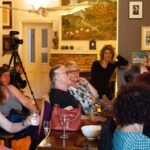
WHERE — Northern Arts Hotel, 359 Barker Street, Castlemaine
WHEN — 6.30 pm for 7 pm, Monday 4 September 2023
FREE — the event is free, and drinks can be purchased at the bar
Towards Eudæmonia- ‘Expect a rich mélange of words, images, sounds and conversation. All in opposition to modernity’s disenchantment of our world…’
Circus Mania
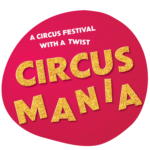
When: 27 Sept – 1 Oct 2023
Where: Western Reserve Castlemaine
A 5-day and night circus festival in beautiful Castlemaine, showcasing the world-class talent that is in and in fact all-around Victoria.
Featuring an extraordinary contemporary Circus, saucy Cabaret and family-friendly Entertainment, this festival has something for everyone, all taking place inside ‘The May Wirth’, a stunning 350-seater traditional circus tent.
The Day the School Went Under

A hilarious comedy show presented by Daylesford Youth Theatre as part of the Words in Winter Festival.
When: Saturday 26 August
Where Daylesford Town Hall, Vincent St
Tickets $15/$10
Bookings: https://www.trybooking.com/events/landing/1088886
Documentary Filmmaking Masterclass
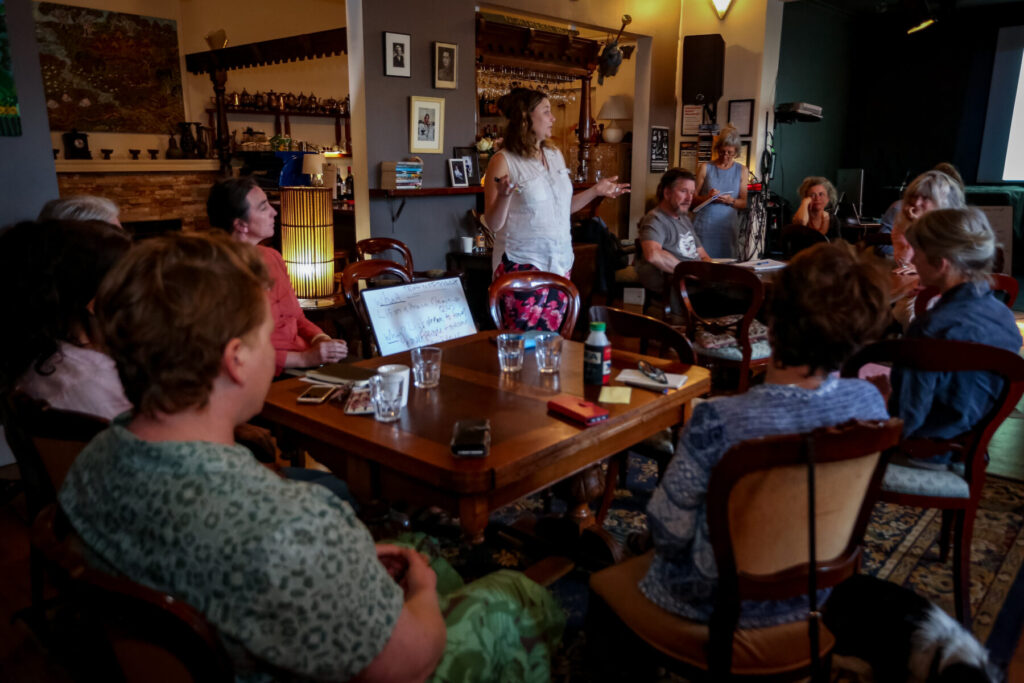 A 3-hour masterclass with three of the documentary world’s most experienced practitioners.
A 3-hour masterclass with three of the documentary world’s most experienced practitioners.
Tony Jackson, Bergen O’Brien and Sam Dinning share tips and tricks to help you create a compelling short documentary.
When: 9 September, 2 – 5 pm
Where: Northern Arts Hotel
Cost: $50/$40
Bookings: https://www.trybooking.com/events/landing/1099262
Maldon Landscape Prize: Essence of Place
The inaugural Landscape Prize 2023 Essence of Place is presented by Maldon Artist Network (MANet) and EDGE Galleries. Entries close 8 September 2023. First prize $10,000 and People’s Choice Award $1000 for the online exhibition winner. For more information go to the MANET website.
Mapatazi: Girlz Guitar Onslaught
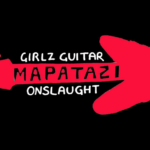
Sunday, 27 August 2023, 11 am – 3 pm
Goods Shed Arts
$35 Full / $25 Concession
Calling all women/girls/non-binary electric guitarists & bass players from beginners to advanced to make some noise in this electrifying workshop without pressure to perform in public. Feel what it’s like to be part of the Mapatazi (pronounced Map o’ Tassie!) en masse onslaught of guitars.
Community-spirited yet professional in the outcome. Mapatazi’s original music hints at ambient washes, heavy metal riffs and anything in-between. In the workshop, we’ll try out some new ideas composed especially for an onslaught of guitars. This may include rock riffs ambient washes, and anything in between. You don’t need to read music. All the pieces are designed for players of different skill levels.
All ages are welcome. BYO instrument, amplifier, leads & lunch.
Melbourne Chamber Orchestra: A Feast of Music 2023
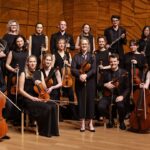
When: 9 – 10 September 2023
Where: Hotel Bellinzona – Daylesford and Hepburn Springs
MCO’s “A Feast of Music” chamber music festival lights up Daylesford and Hepburn Springs this September 9 & 10. Magnificent chamber music, an orchestral concert & a musical dinner. Directed by MCO Artistic Director Sophie Rowell, and with special guests acclaimed pianist Kristian Chong and French horn virtuoso Peter Luff. Packages and single tickets are now on sale.
To book tickets: https://mco.org.au/event/a-feast-of-music-2023/
Newstead Arts Hub
NerdROM Node 1: Sound and Music
Sat 2 Sept, 7pm onwards. Free
Come along for this inaugural event exploring sound and music using live electronics. Experience the creativity of four performers from Newstead and Castlemaine: Barfield, Nicky System, Paul Britton and Aimee Chapman. Live projection art will accompany the performances. Free entry. Drinks available
Finding a voice: Spring Series of artists’ talks’
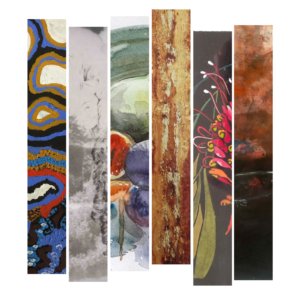
Three talks: Thursdays 7 Sept, 12 Oct, 9 Nov – at 5.30pm
Join us for our Spring Series of artist talks. Hear three local, accomplished artists speak about finding and sustaining their own artistic voice. These talks will be of interest to anyone working in creative fields, as well as art loving members of the public.
- Melinda Harper, Thurs 7 Sept 5.30pm – BOOK HERE
- David Frazer, Thurs 12 October 5.30pm – BOOK HERE
- Kynan Sutherland, Thurs 9 November 5.30pm – BOOK HERE
These talks are free, but please book to help with catering
While We Live: an exhibition
Weekends: Sat 9 Sept – Sun 2 Oct, 10am-4pm
Opening event Sat 9 Sept 2pm
Experience this new body of work by James Healey and Hugh Wayland. Their photographs explore links between analogue and digital, contrasting the urban and remote environments in which we live and move. It includes images captured spontaneously while travelling by car, walking or meeting people, as they went about their daily lives
Exhibition spaces at the Hub
Get out of the studio and into the Hub where our great exhibition spaces await your work. We’ve got some gaps in our calendar and a great team to help you hang and promote your work. Bookings now open for 2024! Email us at info@newsteadartshub.org or submit a short proposal at https://newsteadartshub.org/venue-hire/.
Northern Arts Hotel program
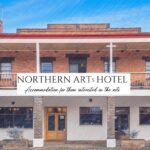
Music, film discussions and more each week.
Here’s the link to the latest calendar of events at the Coolroom: https://northernartshotel.com.au/the-coolroom/
Project Ludwig – A Family Concert at The Daylesford Convent
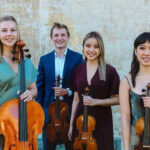
Date: Friday, September 22, 2023
Time: 7:00pm
Venue: The Convent, 7 Daly Street, Daylesford
Tickets: Adults: $30, Children: $10, Family: $60
Bookings: https://asq.com.au/artfuel/tickets/430/sale
The Artamidae Quartet will hold a family-friendly, interactive concert featuring Beethoven’s Opus 18 string quartets, where you decide the program!
This special choose-your-own-adventure style event will allow concertgoers to learn about music of Ludwig van Beethoven’s famous Opus 18 string quartets and to speak personally with the musicians about their favourite music before choosing what they would most like to hear. The audience decides the program! Experience your very own, unique, Beethoven string quartet. A different program every time!
The Taproom – Shedshaker Brewing
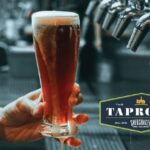
Upcoming gigs:
Aug 26 – Yes23 Art Auction Fundraiser
Sep 8 – Tribute – Rolling Stones
Sep 10 – Tango Mood
Words in Winter
A weekend of writers, story-tellers, poets, artists and more. This years theme is ‘Out of the Shadows’.
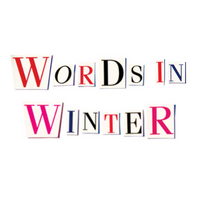
When: August 25, 26 and 27th
Where: Assorted venues around Daylesford and other locations in central Victoria
For program: https://wordsinwinter.com/
Words in Winter- Open Mic at Yandoit Cultural
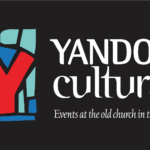
Stories, song, poetry and local history.
The theme for this year’s Open Mic session is “around the hearth”- that place where we gather in the winter. All welcome.
When: Sunday August 27th, 2pm
Where: Yandoit Cultural– the old church in the bush, Uniting Church Rd, (off High St) Yandoit
2. Building Community
Goldfields Libraries StoryWalks
StoryWalks are a fun and educational activity that places a children’s story (literally a book taken apart!) along a popular walking route in the community. They are a physical activity and a literary experience in one.
Being active is good for our bodies, and reading is good for our brains. The combination of both is a great all-round activity for our health and wellbeing!
Goldfields Libraries regularly host StoryWalks across the region. We currently have StoryWalks in:
- Castlemaine – Castlemaine Train Station. West side along Barkers Creek Trail (Gingell St). Download map.
- Heathcote – Heathcote Playspace, 126 HIgh Street. Download map.
- Kyneton – Shared path next to Kyneton Primary School and Kindergarten. Between Victoria and Edgecombe Streets. Download map.
For more information: https://www.ncgrl.vic.gov.au/storywalk
Hepburn Life – Council Newsletter Out Now
This month’s edition includes information on an upcoming agricultural forum for farmers, seniors week activities and subsidised compost bins for shire residents. Follow the link below to read the newsletter:
Saturday Philosophy in the Library
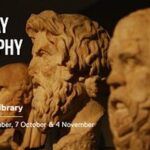
On the first Saturday of each month, the library has hosted philosophical discussions. Meet up with like-minded people to enjoy a session of thought provoking ideas run by the Central Goldfields School of Philosophy. There is a new subject each month – come to one, some, or all!
Saturday 2 September 10-11:30
Saturday 7 October 10-11:30
Saturday 4 November 10-11:30
More information at practicalphilosophyvic.org.au
Seniors Week Community Lunches and Mini Expos
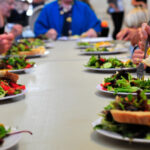
Castlemaine Community House is hosting the Seniors’ Week Festival again for Mount Alexander Shire. The theme for the statewide festival is Love, Live and Learn.
Seniors are invited to come and enjoy community lunch for free, and chat with mini-expo vendors
3 October: Castlemaine (Town Hall)
4 October: Maldon
6 October: Harcourt
3. Ecology and the Environment
Ballarat Tailings Dam Concerning Local Residents
An article was published this week in the Guardian online about a new tailings dam for the Ballarat Goldmine that was recently approved by the City of Ballarat, a decision that is being challenged at VCAT by a concerned local residents group.
Biolinks Alliance Newsletter
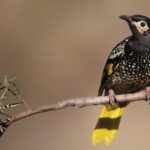
On-the-ground works start at Spring Plains
Local students bringing life back to Snipes Creek
Restoring and reconnecting glider habitat
Fundraising for Biolinks Alliance on a journey of a lifetime
Rewilding Central Victoria – expert panel event
Large Old ‘Hero’ Trees and their life-sustaining hollows webinar
Volunteer opportunities
Meet the team – Ellie McKenna, Biolinks Alliance Relations Manager
Donate to support our work
For more information about the Biolinks Alliance: https://biolinksalliance.org.au/
To subscribe to the Biolinks Alliance newsletter: https://biolinksalliance.org.au/sign-up
Climate Changers Documentary
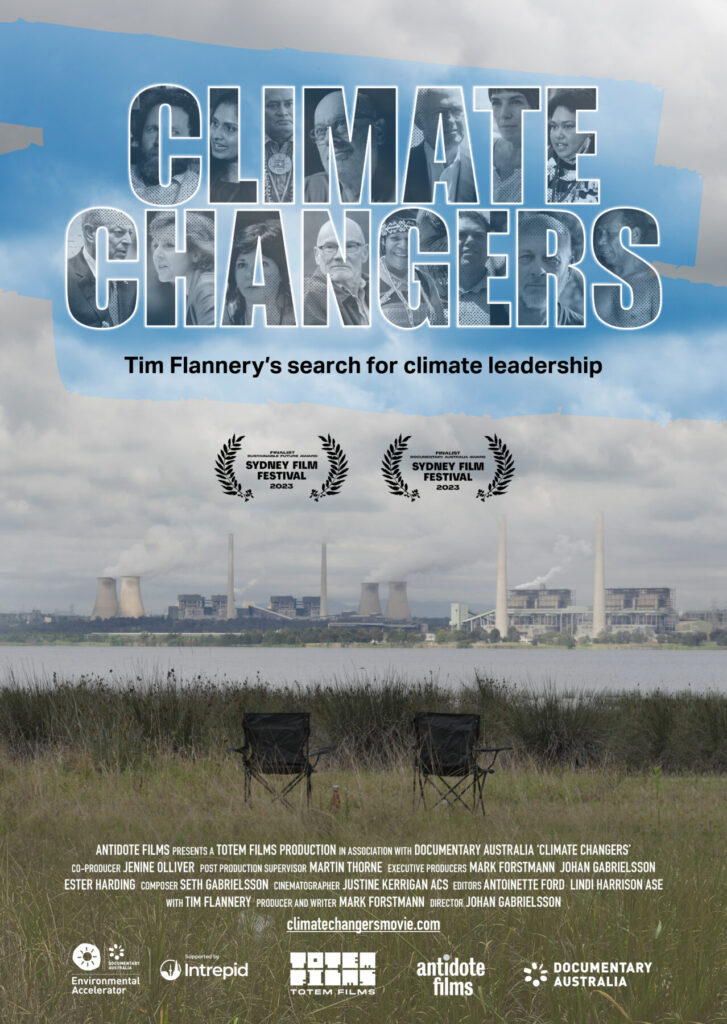
Follow renowned Australian environmental scientist Tim Flannery as he searches for leadership in tackling climate change in this documentary. Where are the leaders who will drive change, and how might they succeed where others have failed?
When: 17 September at 5.30pm
Where: Theatre Royal
Cost: $25/$22
Bookings: https://theatreroyalcastlemaine.oztix.com.au/outlet/event/
Community Carbon – Landowners Wanted for Revegatation Pilot Project
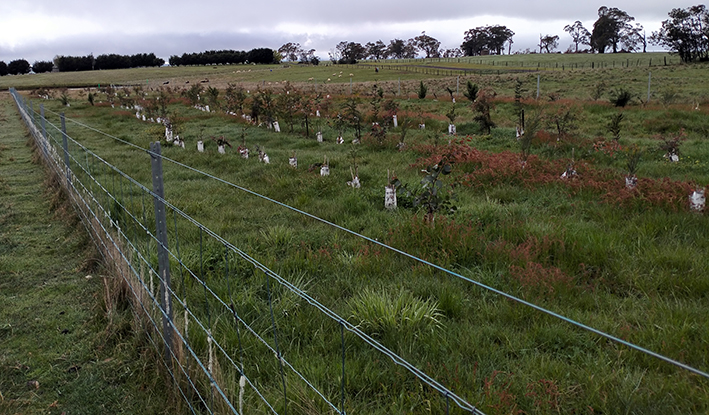
The Northern Central Catchment Management Authority (NCCMA) are looking for interested landowners for the Community Carbon project, which aims to support revegetation efforts restoring critical habitats, connecting fragmented landscapes and addressing biodiversity loss.
For more information and how to apply, please visit https://connectingcountry.org.au/community-carbon-growing-to-net-zero-in-central-victoria/
Free Environmental Video Program- Stories to Action
Where: Greater Bendigo region
Seeking young people (12-25) interested in using creativity to help inspire a more sustainable world! The Stories to Action program will support you in creating your own videos about the environment and sustainability, and use them to inspire positive change in the broader community. You can be involved as a co-designer and/or participant. Applications are assessed as they come in. Closing at latest by Mon Sept 11th.
For more information and to apply: https://docs.google.com/forms/d/e/1FAIpQLSf08rvD2kZXRmr73WJuzrnxm_qxmIgoFFflaXSmazFf6WirWg/viewform
Native Wildlife and Rodent Poisons Alert
Planet Local Summit- Re-framing the Climate Debate

When: September 29- October 1st, 2023
Where: livestream (plus in situ in Bristol UK)
The Planet Local Summit is shaping up to be one of the biggest gatherings focused on localization/decentralization in history. Among those joining us are powerful voices reframing the climate debate:
- Charles Eisenstein, author of ‘Climate: A New Story’.
- Camila Moreno, the world’s preeminent analyst of the COP climate negotiations.
- Jack Harries, youth leader for climate education and documentary filmmaker.
“Even if we cut carbon emissions to zero, if we don’t also reverse ongoing ecocide on the local level everywhere, the climate will still die a death of a million cuts. The most important global policies would be those that create conditions where we can restore and protect millions of local ecosystems.”– Charles Eisenstein Newstead blog
4. First Nations
Concert for the Yes! Vote

When: 7pm, Thursday 14 September 2023
Where: Theatre Royal Castlemaine
A collaboration of fourteen-plus outstanding Indigenous leaders, musicians, storytellers, writers and artists to raise money and spirits in support of the YES in the forthcoming Australian referendum on the Aboriginal and Torres Strait Voice and recognition in the Constitution and to celebrate Indigenous culture in central Victoria. A night with a substantial Welcome to Country, songs in the Dja Dja Wurrung and Wadawurrung languages, mighty anthems from great Australian songwriters, powerful words from renowned writers, music that unites cultures, a soundscape of this continent and a big sing-along.
All proceeds go to the local YES23 campaign.
For more information and tickets: https://theatreroyalcastlemaine.oztix.com.au/outlet/event/3c7b2f5a-6d5e-456b-b24e-dab686e35e75?Event=17429
5. Food Growing, Farming and Food Security
Castlemaine Seed Library Working Bee

Come and join Castlemaine Seed Library volunteers to help pack seeds for the seed library program
When: 7 September at 11am
Where: Castlemaine Library Foyer
Eating Democracy: The True Cost of the Food We Eat – Crowdfunding Campaign
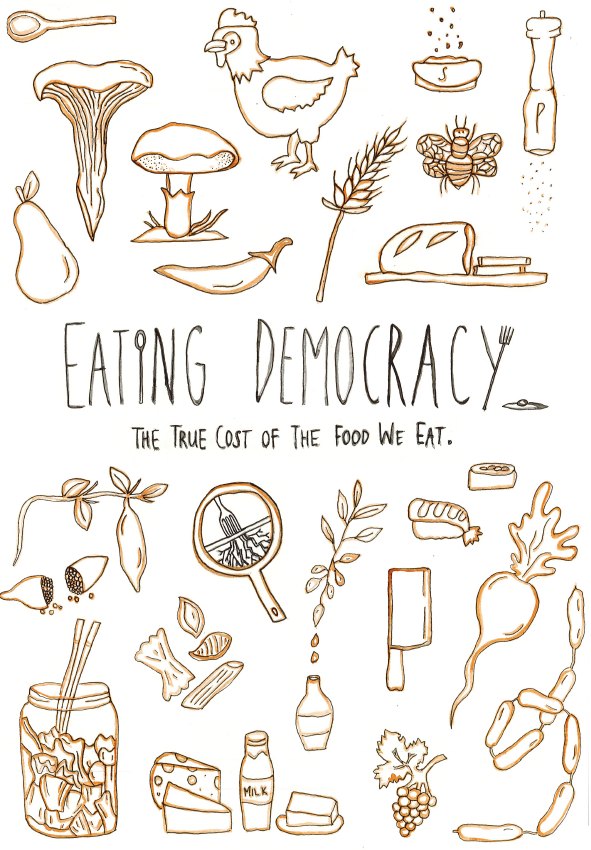
The Australian Food Sovereignty Alliance (AFSA) has launched a crowdfunding campaign to raise $30,000 to publish its new book, Eating Democracy: The True Cost of the Food We Eat, and they need your help to reach their target! Through the stories of everyday people from different cultures, Eating Democracy explores the true cost of the food we eat, and the benefits to health, community and the planet from making ethical food choices.
To support the campaign, you can make a donation at: https://www.pozible.com/project/eating-democracy
If you’d like to spread the word about the campaign, please share the Eating Democracy Promotion Pack among your networks.
The campaign closes on 19th September, so please share widely to support this important work from AFSA.
Harcourt Organic Farming Co-op (HOFC) dairy is back at the market
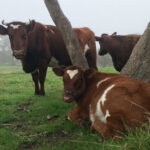
Tess from HOFC is pleased to announce that the milk drought has broken, and she will be selling milk and yoghurt again at the weekly Castlemaine Farmers’ Market
6. Sustainable Economic Initiatives
Unleashing Local Economies in a Global Game – webinar
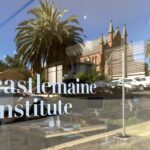 Economist Michael Shuman and Kai Lofgren from Regen Melbourne in conversation exploring how innovative, place-based approaches to economic investment can help to build stronger, more resilient communities.
Economist Michael Shuman and Kai Lofgren from Regen Melbourne in conversation exploring how innovative, place-based approaches to economic investment can help to build stronger, more resilient communities.
Organised by: Castlemaine Institute in partnership with Regen Melbourne and Small Giants Academy.
A free event.
When: 31 August from 8-9am (yes, am!)
Where: online
Bookings: https://events.humanitix.com/conversation-local-investment-in-a-global-game-with-michael-shuman
7. Sustainable Living Resources
Hepburn @ Home
A 6-session series of free online workshops on sustainable living, put together by the team from the Good Hood, full of practical information on composting, low waste cooking, electric vehicles and much more

When: starting 16th August
Where: Online
Cost: free
To register, go to: tinyurl.com/hepburnathome
Kinship Natural Building Festival
A two day, hands-on workshop in methods of building with natural materials, including cob, mudbrick, natural renders and earthen floors. Sleep overnight in the solar-passive ecologically designed and fire-resilient Earthship ‘Kinship’ featured in lead articles, radio shows and news stories across local, state and national media.
When: 25 – 26 August, starting 10am
Where: 19 Ward St, Kinglake
For all enquiries and bookings, contact Daryl Taylor by phone on 0497097047 or email kinship.kinglake@gmail.com
Letters
Camp Reserve Destruction
By Trevor Scott, Castlemaine
Already many of you have written to this newspaper about the redevelopment of the Camp Reserve in Forest Street, Castlemaine. In his recent letter, Ian Braybrook says “those who know the history and continuously use the Camp [Reserve] are content with the council plan” but how well do they know the history and, is he aware that in a recent survey carried out by MASC, 51% of those surveyed, voted against the plan. If you stand at the south end near the entrance and look westwards to the top of the highest point on Gingell Street, you will see the mature, native species trees that have to be removed. You will also realise that the flat area needed for basketball courts and a grandstand with change facilities, has to be cut out of this hill, irretrievably changing the look and appearance of the reserve.
As an architect and long time resident of the town, I am concerned that the proposed plan will change the landscape drastically, and I really wonder if the extra cost of tree and earth removal, site drainage and retaining walls, all to be borne by ratepayers, is justified when the grandstand and proposed facilities could more easily and definitely more cheaply, be built on the flatter part of the site at the northern end.
The history of this area goes back more than 150 years, to a time when everywhere you looked you would see miners panning for gold. History tells us that their tents and shanties were perched on the hill that they now want to remove. Surely history is not just a list of events in a book; it is also very much about the places where these events occurred. I think that unless we move forward with respect for our history, we make these proposed changes to the Camp Reserve at our peril.
Food for Thought
1. Conversation between Dr Iain McGilchrist and Charles Eisenstein
An inspiring, thought provoking discussion between two of our favourite writers: Charles Eisenstein, author of Sacred Economics and The More Beautiful World Our Hearts Know is Possible and neuroscience researcher Dr Iain McGilchrist, author of The Master and His Emissary and The Matter With Things.
2. Animals in the Room – Why We Can and Should Listen to Other Species, by Melanie Challenger in Emergence Magazine
Anyone who develops deep knowledge of other species by living alongside them for years realizes something both obvious and essential: we are not the only lives that matter…
3. Mine-Field documentary on-line.
About mining in Victoria. $5 to rent. Here’s the link: https://barkingmedia.vhx.tv/
4. Interview with Helena Norberg-Hodge, Local Futures, on redundant trade and the need to systemically reduce resource-use and emissions.
Author and filmmaker Helena Norberg-Hodge is a leading, eloquent voice in the localisation and new economy movement. Some readers may recall that she was one of the keynote speakers in the Local Lives Global Matters conference held in Castlemaine in 2015, out of which Localising Leanganook was born. See the interview here: Free Speech TV.
5. How the ‘green economy’ exacerbates deforestation in Brazil By World Rainforest Movement
“In the ‘green economy,’ the interests of corporations, governments and the conservation industry intersect. All of these entities, in one way or another, profit from the destruction of forests and the dispossession of communities.” Read More
6. Walking Together Towards Makarrata – Cultural Literacy
The latest piece from local writer and First Nations ally Floria Maschek
And finally, from the Holmgren Design newsletter:
7. Permie Vision, US Provisions and David on Television
Want to hear something basic?
This week we patched up a tumbledown chicken coop in readiment for a new flock.
It’s a bit out of the way, this hen haunt, a fair jaunt from the nearest water source.
Or so I thought.
But just as I was lamenting the lack of taps and hoses, steeling myself to schlep pails of water across the road and up the slope…
…I noticed David Holmgren’s intervention.
He’d attached a gutter and a downspout to the chook house roof, directed neatly into a barrel right next to their trough.
Because water falls from the sky.
Permaculture design often seems simple, but when you’ve been steeped in a culture of commodification, convenience and buying back your basic needs, observing and interacting with nature’s systems can be quite the revelation.
Here are three more:
🎥 David Holmgren is featured on the latest episode of Great Australian Walks with Julia Zemiro, popping up at Vaughan Springs to share deep knowledge of the local landscape, history and hidden waterways. It’s a television revelation! Watch the playback.
📚 The United States of Permaculture is live! If you’re in the US, we’re pleased to tell you that wholesale book purchases are now available. Great for permie teachers, resource centres, book clubs, libraries and big families. Minimum order of $100USD, free shipping over $200USD. Head to the US store.
🤓 And Aussies, you’ve always been able to access our titles at wholesale prices for orders over $150AUD, with free shipping over $250AUD. Is it finally time to start that RetroSuburbia Book Club? Or install 470 at your local library? Jump to the AUS store.
Thanks for reading, friend. Wishing you a wellspring of August cheer.
Catie and the Holmgren Design team

![[ Random Image ]](https://leanganook.org/images/image_14.jpeg)
